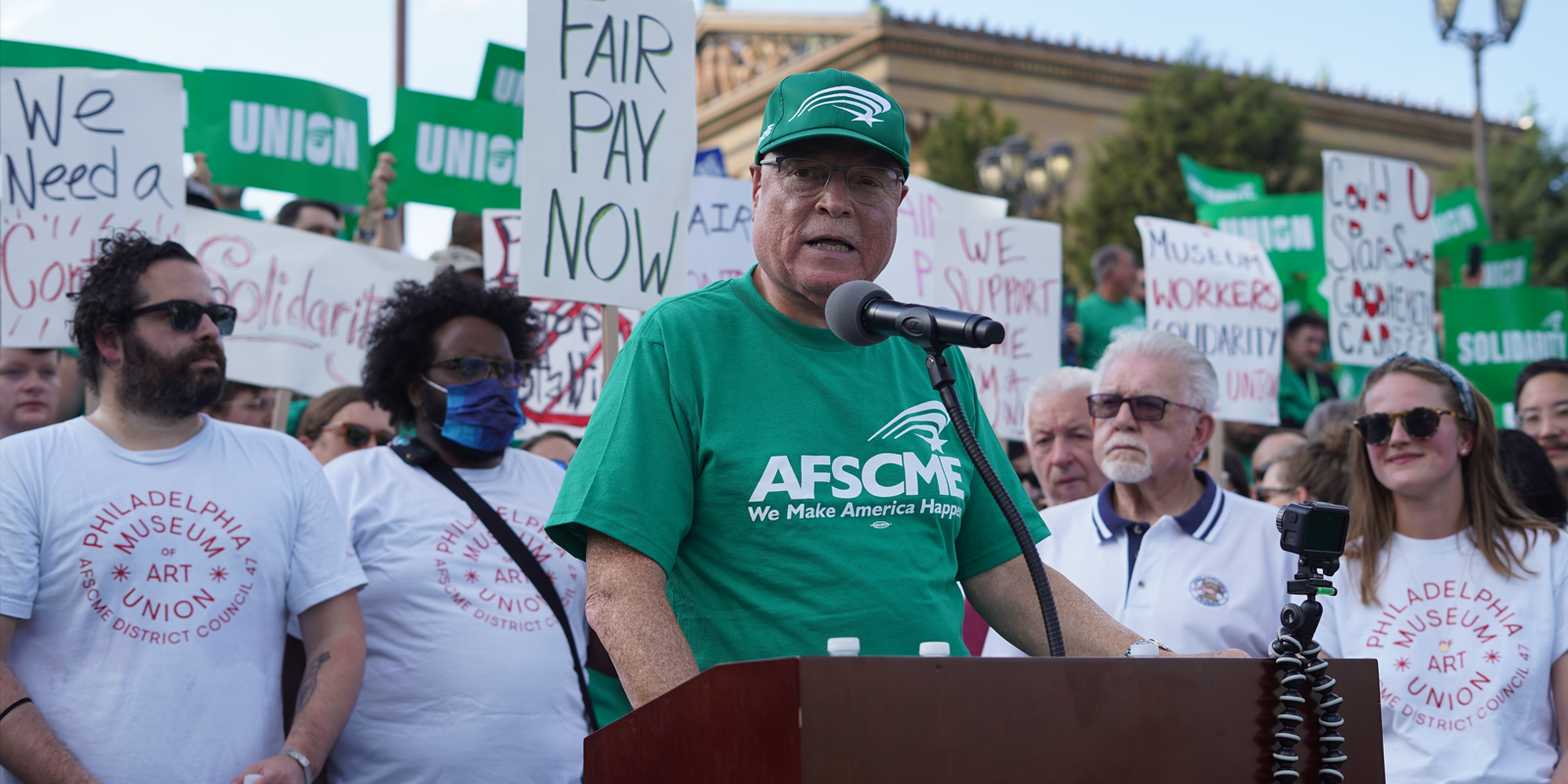More Americans today believe that labor unions benefit society and want to see their influence strengthen over time, according to a new Gallup poll.
Gallup’s annual poll on union popularity, which the organization releases around Labor Day every year, shows that two-thirds of respondents (67%) approve of labor unions. Support for unions in the United States has been rising for more than a decade, and 2023 is the fifth straight year that it has surpassed its long-term average of 62%, according to Gallup.
The poll shows one-third of Americans (34%) believe unions will become stronger in the future than they are now. That’s a huge increase since 2018 – the last time this sentiment was measured – when only 19% said so.
“This year’s Gallup poll confirms what we’ve known for a long time: Americans believe in the power of unions to strengthen our economy and improve the lives of working people. Not only has the overall favorability of unions remained high, but it is increasing across all demographics – especially among the younger generation that will lead the labor movement in the future,” AFSCME President Lee Saunders said in a statement today.
AFSCME members know the union difference firsthand, but now more workers, including those who don’t belong to unions, believe unions have a positive influence on business and the economy, according to the poll. The results show that a record 61% of respondents say unions help rather than hurt the U.S. economy and 57% say unions mostly help the companies where workers are unionized.
This year has seen an impressive amount of worker activism. From Hollywood writers and actors to Starbucks baristas, Amazon drivers, UPS workers, automotive workers and more, union members are taking action, sometimes even going on strike, to make their voices heard and achieve fair contracts. Some 650,000 workers are on strike or were expected to strike this summer alone.
AFSCME members are negotiating robust contracts nationwide – in Illinois, California, Wisconsin and Nebraska, to name a few – giving public service workers greater economic security and a more powerful voice on the job.
“We have continued to organize nonstop. Six thousand workers at museums, libraries, zoos and other cultural institutions have joined AFSCME since 2019,” Saunders said. “In Colorado, AFSCME members have been working to organize more than 36,000 county workers who won collective bargaining rights last year. In New Orleans, municipal employees represented by AFSCME won the freedom to negotiate a few months ago.”
Now, Congress must eliminate barriers to organizing. Lawmakers must approve the Richard Trumka Protecting the Right to Organize Act (PRO Act), which would make it easier for private sector workers to form unions, and the Public Service Freedom to Negotiate Act, which would establish a minimum nationwide standard of collective bargaining rights that all states must provide public service workers.
Gallup isn’t the only organization reporting a steady rise in union popularity. The AFL-CIO also released a survey this week that shows overwhelming public support for unions – across party lines and particularly among young people.
“The idea of a union may sound complicated, but in reality, unions are just a group of people coming together. They are about each of us becoming the most powerful version of ourselves that we possibly can,” said AFL-CIO President Liz Shuler. “And there is nothing better than finding that power alongside the people we work with and being a part of something bigger than ourselves. … People in this country have been searching for their power for a long time now, young people especially.”
